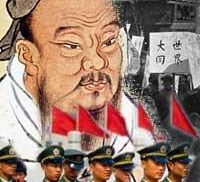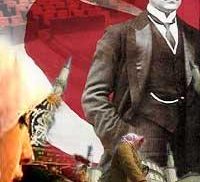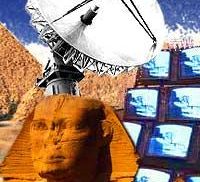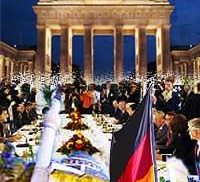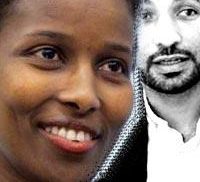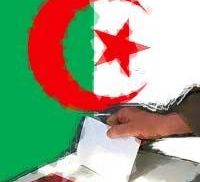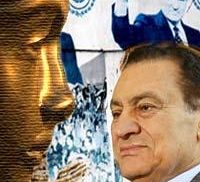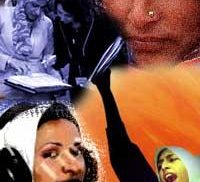This dossier stems from the debate sparked by Elizabeth Suzanne Kassab’s article—which opens this collection—on the transformation of the Arab intellectual scene after 2011. Her notion of a “new contemporary” in Arab thought prompted a series of contributions that do not aim to offer solutions, but rather to raise new questions, probe unresolved issues, and put forward critical perspectives. Bringing together Kassab’s essay and two related pieces, the dossier explores how Arab thought is redefining itself in light of the uprisings, the failures of political transitions, and the moral and intellectual rupture marked by Gaza.
Dossiers
- In 1976 Ernst-Wolfgang Böckenförde presented the following dilemma: “The liberal secular state lives on premises that it is not able to guarantee by itself. On one side it can subsist only if the freedom it consents to its citizens is regulated from within, inside the moral substance of individuals and of a homogeneous society. On the other side, it is not able to guarantee these forces of inner regulation by itself without renouncing to its liberalism.” What answers can the liberal state offer to questions of social cohesion and ethical deficit that are affecting secularized democracies? Are we living in a secular or a post-secular society? Reset put these questions to some of the most influential international intellectuals.
- The democratization of China will not necessarily involve the adoption of the Western model. On the contrary, it is by looking within itself, and going back to its Confucian roots, that the Asian giant could slowly open itself up to democracy. So says Daniel A. Bell in his latest book Beyond Liberal Democracy. The traditional values of Asia are founded upon communitarianism, social order, respect for elders and a paternalistic state – but is this definition still valid? As China opens itself up to the values of the West, the West seems to look down with a sense of superiority on Asian values. And yet Benjamin Franklin, almost 300 years ago…
- The media of the old continent have accentuated the political battle which has recently prevented the Islamic moderate Abdullah Gul from becoming president of the Republic: an event which has reignited the anti-Turkish and anti-Islamic polemic. “There is no risk whatsoever of theocracy”, assures the philosopher Seyla Benhabib, who says to be interested in the experiment of Gul and Erdogan’s party. Turkish politics is already ever more European, and the same laics, as sociologist Nilüfer Göle explains, have knocked down the wall of incomprehension which separated them from the clergymen. So, the only wall left is the one which Europe is putting up. The doors of the EU remain closed.
- Politics may continue to slam the door in their faces and to suppress all dissent, but, to the citizens of the Arab world, the emergence of new media today offers an extraordinary opportunity. Satellite TV, on-line journals, blogs and Youtube are giving a new voice to Arab ‘subjects’, who escape with increasing frequency the control of regimes. A part of the credit must be attributed to the pan-Arab satellite channel Al Jazeera, which has for years been challenging the ‘single thought’ of governments, and which is changing the very nature of journalism in the Arab world. The agendas of the media have been shaken, opening up unexpected spaces for all – for Islamic opposition, but also for secularists and reformists.
- The Second session of the German Conference on Islam concluded with a controversial balance. No concrete results, but an undoubted symbolic success. It’s some time now that Germany has quit considering immigrants as simple Gastarbeiter, guest workers. New Germans of Turkish origins are in the Bundestag or at the top of major political parties, and they often play the main characters in German movies and TV fictional stories. Surely some problems remain if one Turkish-German out of two still searches for his wife abroad, and if every generation is still a first-generation – as the NYT Magazine wrote. But the new course has started and Germany shows to be seriously taking into account the challenge of integration.
- Over the past few months a heated debate, spread across the pages of the international press and of the website Signandsight.com, has raised the following question: Should the West support moderate yet controversial Muslims such as Tariq Ramadan, the popular grandson of the founder of the Muslim Brothers, or Islamic dissidents such as Ayaan Hirsi Ali, who for years has spoken out against crimes committed on women in the name of Islam, and who wrote the screenplay of Theo Van Gogh’s provocative film Submission? The two intellectuals know and cannot stand each other. And yet today, while the Italian right once again attacks Ramadan, who is still banned from the U.S., the ex-Somalian refugee here defends his right to freedom of speech, even if she claims to be completely opposed to his thinking.
- Algeria prepares for the election of the National Popular Assembly, voting coming about a month after the attack – claimed by "Al Qaeda for the Islamic Maghreb" – which killed 33 people in the capital. While intelligence services warn that the likelihood of a new attack is far from remote, political parties are wearily preparing themselves for the elections. Algerians remember those of 1991, won by the Islamic Salvation Front (FIS), and for this reason too, no surprises are expected. High levels of abstention are likely, which can be interpreted as a protest against the National Front of Liberation’s (FNL) hegemony, and a monopoly that is set to be confirmed in an ever more dull and monotonous democracy.
- On the 26th March, the reform of the Egyptian Constitution was approved by popular referendum, in which only 27% of those eligible voted (5% according to the human rights groups). Socialism is cast to one side, and the regime becomes even more authoritarian: religious parties are banned, judicial supervision of elections is eliminated, and legislation brought in for a state of emergency become permanent. President Mubarak strengthens his rule, and the possibility of the ‘monarchical’ succession to power of his son Gamal looms ever closer. In the meantime, as the American scholar Robert S. Leiken explains in an interview, the international community considers with growing interest the increasing influence of moderates within the Muslim Brotherhood, the only real force of opposition to the regime.
- France will go to the polls to elect the new President of the Republic, and it will be interesting to see how multicultural France votes. After the autumn of 2005 and the banlieue riots, and following the controversy over the threat of anti-semitism, which way will the country’s major religious communities go? The republican model of integration itself is being called into question, and whilst other European countries look on with increasing interest, there have also been strong criticisms, as was seen in the debate concerning the wearing of the Islamic veil in schools. How will the direction of French foreign policy change? And is it true that France will reject its current pro-Arab orientation should Nicolas Sarkozy and the center-right triumph?
- According to the latest UN report on human development, women in Arab countries still have great difficulties in gaining access to education, health, politics, work and rights. Unemployment, Aids and domestic violence are problems which remain unresolved. However, it is not because of Islam that women rights are not respected in the Muslim world, as the American philosopher Martha Nussbaum says to us in an interview. In the Arab-speaking region, businesses led by female entrepreneurs have a larger number of employees, attract more foreign investors and export more than those led by male entrepreneurs. Is it through women that the Arab renaissance will develop?




